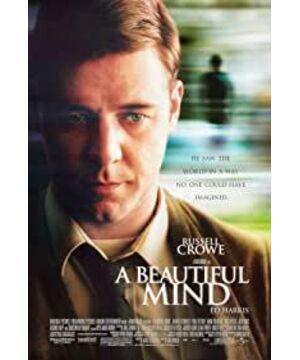How to say it, it seems that everyone has too much focus on Nash, how is he? In the end he got what.
But I don't think it's necessary to magnify the question of "how are people and what do they get".
Why can't we look back: What contribution did Nash bring to the people around him and to society?
Attention friends, you should be able to get more useful elements from this movie that are different from other movies.
From the second time Nash is in a bar and some classmates discuss the problem of "picking up girls". Vividly and clearly expounds the core content of his original theory: "In the competition, everyone should give priority to their own interests [the same argument as people do nothing, and the world will perish]" And the denial of the economic theory of "promoting the development of the whole by this mutual competition", and came to a theory on how to achieve a win-win situation in the game.
Make up for the shortcomings of pure competition theory (the father of modern economics, Adam Smith's theory) (I personally think that Adam Smith is too optimistic that competition is beneficial, and does not consider the situation of malicious competition that may arise in competition.).
And Nash's theory takes into account and improves this situation: when a group is in the competition for its own interests as the original drive, participate in the competition, in order to get a "best result". The reality is that there is always only one "best outcome". Therefore, the end of this model is: if the best is not achieved, then the average and the worst will also be missed. That is, in the end what we (most people) pay for the competition is only a loss.
In fact, it is not absolute here, but the movie is enlarged by a point from the side. In reality, in a centralized collective or society, there will also be one party who benefits, but the biggest drawbacks of this model are: the possibility of benefit is low, the scope of benefit is very narrow, and the long-term benefit of benefit is not guaranteed.
At the end of the film, it is said that the theory proposed by Nash has influenced the global enterprises to pay attention to labor issues (it is conceivable that the development process of interest groups, from slave labor relations to today. What a leap and progress.), and then promote the development of the global economy.
If an enterprise can reasonably distribute the benefits to every employee in the enterprise, it will pay full attention to the contribution of every employee. Let all members have and embrace the same goal, so that every participant in the group will be a beneficiary, so that the group can last longer.
That's what Nash: The Win-Win Theory in Games proposes.
Speaking of which, I am not denying Nash's personal character and will to fight the disease. I just want to correct a point: heroism. Many commenters see only one person, or how one or two of them are, and focus on amplifying them. I think that tends to seem extreme. Looking at the problem is more partial, and it is more contrary to Nash's theoretical contribution. You must know that in that era, every classmate and friend around that campus and Nash was equally outstanding. As the saying goes, a hero is not judged by success or failure.
Two hilarious lines from Martin and Nash when they meet in his office years later on the show:
Nash: "Looks like you're the winner, Martin."
Martin: "They're wrong, John, no one wins. "
Yes, no one is a winner, this society has set too many standards for us. In fact, everyone has their own life, everyone has their own life.
Those standards of one kind or another are nothing compared to the one life that everyone has.
I hope you all get more out of this movie than just one you'll soon forget about yourself: sigh.
Finally, I want to say: be yourself and don't be swayed by standards.
View more about A Beautiful Mind reviews











